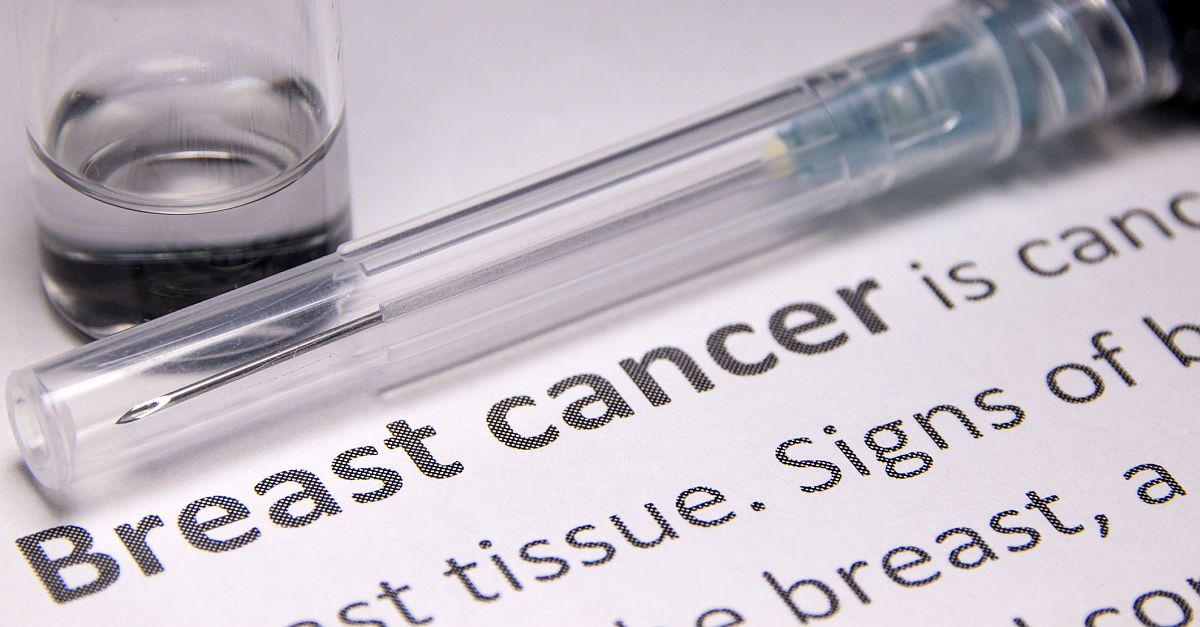With the continued increase of COVID-19 cases in the United States, social distancing guidelines remain crucial for combating the disease and limiting its spread. Cancer patients remain a highly vulnerable population that must balance social distancing guidelines with receiving necessary treatment in clinics. Following recent results from the FeDeriCa study, the US Food and Drug Administration (FDA) approved the subcutaneous combination therapy of pertuzumab, trastuzumab, and hyaluronidase (PHESGO™) for at-home administration in patients with human epidermal growth factor receptor 2-positive (HER2+) breast cancer. The FeDeriCa trial followed 500 patients randomized to either chemotherapy plus subcutaneous pertuzumab and trastuzumab or chemotherapy plus intravenous pertuzumab and trastuzumab. Authors compared pathologic complete response (pCR) in both groups to assess noninferiority of the subcutaneous formulation.
The pCR rate for the subcutaneous formulation arm was 59.7% (95% CI: 53.3, 65.8) and 59.5% (95% CI: 53.2, 65.6) for the intravenous arm. The safety profile of pertuzumab-trastuzumab-hyaluronidase was comparable to intravenous pertuzumab-trastuzumab, except for increased administration-related reactions. The most common adverse reactions in >30% of patients receiving pertuzumab-trastuzumab-hyaluronidase were alopecia, nausea, diarrhea, anemia, and asthenia. Administered intravenously, the anti-HER2 agents trastuzumab and pertuzumab require approximately 1 hour for the first dose and 30–60 minutes for subsequent doses. The fixed-dosed, subcutaneous formulation of pertuzumab-trastuzumab-hyaluronidase requires only 5–8 minutes for administration and does not need to be given at an infusion center. Although pertuzumab-trastuzumab-hyaluronidase administration requires a qualified healthcare professional, it can be accomplished during an office or at-home visit, reducing the need for travel to infusion centers and potentially reducing breast cancer patients’ risk of exposure to SARS-CoV-2 in clinics.
High Altitude: Approval of the subcutaneous formulation of trastuzumab-pertuzumab provides an avenue for increased flexibility in the usage of these agents in times when access to infusion centers might be limited, such as in COVID-19 “hot spots.” The efficacy of pertuzumab-trastuzumab-hyaluronidase in combination with other agents might allow for clinical trials of the trastuzumab-pertuzumab combination regimens in HER2+ breast cancer patients to continue despite restrictions during the pandemic. Moreover, the current pandemic increases the importance of investigating nonintravenous alternatives to many oncolytic agents, to increase patient convenience and decrease demands on infusion resources.
Ground Level: The recent approval of pertuzumab-trastuzumab-hyaluronidase provides a potential convenience benefit for patients and may allow for administration of this combination therapy for HER2+ breast cancer to shift from the infusion center to the oncologist’s office. American Society of Clinical Oncology guidance continues to advise clinicians to maintain practices that support limiting visits to the clinic and infusion center. Approval of pertuzumab-trastuzumab-hyaluronidase will enable the pertuzumab-trastuzumab combination to also be administered during a home visit from a medical professional. Office or at-home administration of these agents could potentially free up healthcare resources needed to combat COVID-19. In pandemic “hot zones,” this new injection could allow for use of trastuzumab-pertuzumab combination therapy in eligible patients despite local challenges in healthcare resources.

